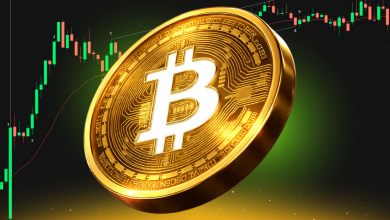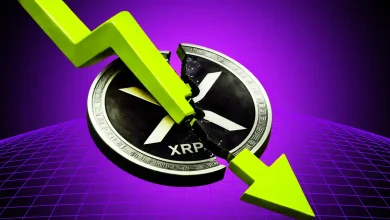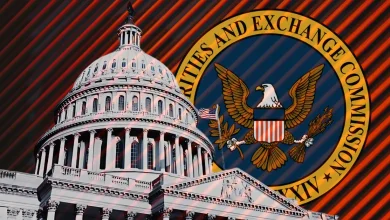
Over 400 wealthy traders allegedly hid their digital assets on Binance and failed to pay the mandatory crypto tax.
These traders failed to report crypto tax returns for approximately $42 million (₹350 crore)
India imposes a flat 30% tax on all gains from crypto with an additional 1% TDA
The tax departments in India have launched an investigation targeting over 400 wealthy traders. According to the Economic Times, these individuals allegedly hid their digital assets on Binance and failed to pay the mandatory crypto tax.
Crypto Tax Evasion in India
The investigation targeting more than 400 high-net-worth traders marks one of the most aggressive enforcement actions against crypto tax evasion in India. The traders are suspected of evading taxes on trades between 2022-23 and 2024-25 by using Binance’s peer-to-peer (P2P) features to avoid KYC and tax reporting.
These traders failed to report crypto tax returns for approximately $42 million (₹350 crore). To stop them from causing further damage, the tax departments in various cities have been asked to submit updates on their findings by October 17, 2025. The probe is primarily centered in Gujarat, Maharashtra, and Delhi, investigating unreported crypto tax gains.
Binance was already going through conflict in India after being banned in 2023 due to non-compliance with the Money Laundering Act. Later in 2024, it resumed operation after paying a $2.25 million penalty and registering with the Financial Intelligence Unit (FIU).
- Also Read :
- Crypto News Today (Live) Updates October 13 : Bitcoin Price, Ethereum Price,Ripple News……
- ,
Crypto Tax in India
India has one of the toughest crypto tax frameworks in the world. It imposes a flat 30% tax on all gains from crypto with an additional 1% TDA on transfers above ₹10,000. For high-income individuals, a surcharge and a 4% cess are also levied, pushing it to approximately 42.7%.
According to Mudrex, the department charges 1% interest per month on unpaid crypto tax with an additional penalty for further delay. It also imposes a penalty of ₹1,000 to ₹5,000 on missed tax returns. More intense cases fall under the Black Money Act, which brings penalties of approximately 300% of the tax amount with additional criminal prosecution.
Despite this knowledge, the traders hoped to escape taxation on their assets. Meanwhile, Binance is helping the administration with its data to trace the alleged 400 traders.
Never Miss a Beat in the Crypto World!
Stay ahead with breaking news, expert analysis, and real-time updates on the latest trends in Bitcoin, altcoins, DeFi, NFTs, and more.
FAQs
Indian tax authorities are probing over 400 wealthy individuals for allegedly hiding crypto gains on Binance and evading taxes on about $42 million from 2022-2025.
Penalties are severe, including monthly interest, fines for late filing, and potential 300% penalties under the Black Money Act, plus criminal prosecution.
Binance was banned in 2023 for non-compliance with anti-money laundering laws but resumed operations in 2024 after paying a fine and registering with the FIU.
Trust with CoinPedia:
CoinPedia has been delivering accurate and timely cryptocurrency and blockchain updates since 2017. All content is created by our expert panel of analysts and journalists, following strict Editorial Guidelines based on E-E-A-T (Experience, Expertise, Authoritativeness, Trustworthiness). Every article is fact-checked against reputable sources to ensure accuracy, transparency, and reliability. Our review policy guarantees unbiased evaluations when recommending exchanges, platforms, or tools. We strive to provide timely updates about everything crypto & blockchain, right from startups to industry majors.
Investment Disclaimer:
All opinions and insights shared represent the author's own views on current market conditions. Please do your own research before making investment decisions. Neither the writer nor the publication assumes responsibility for your financial choices.
Sponsored and Advertisements:
Sponsored content and affiliate links may appear on our site. Advertisements are marked clearly, and our editorial content remains entirely independent from our ad partners.







